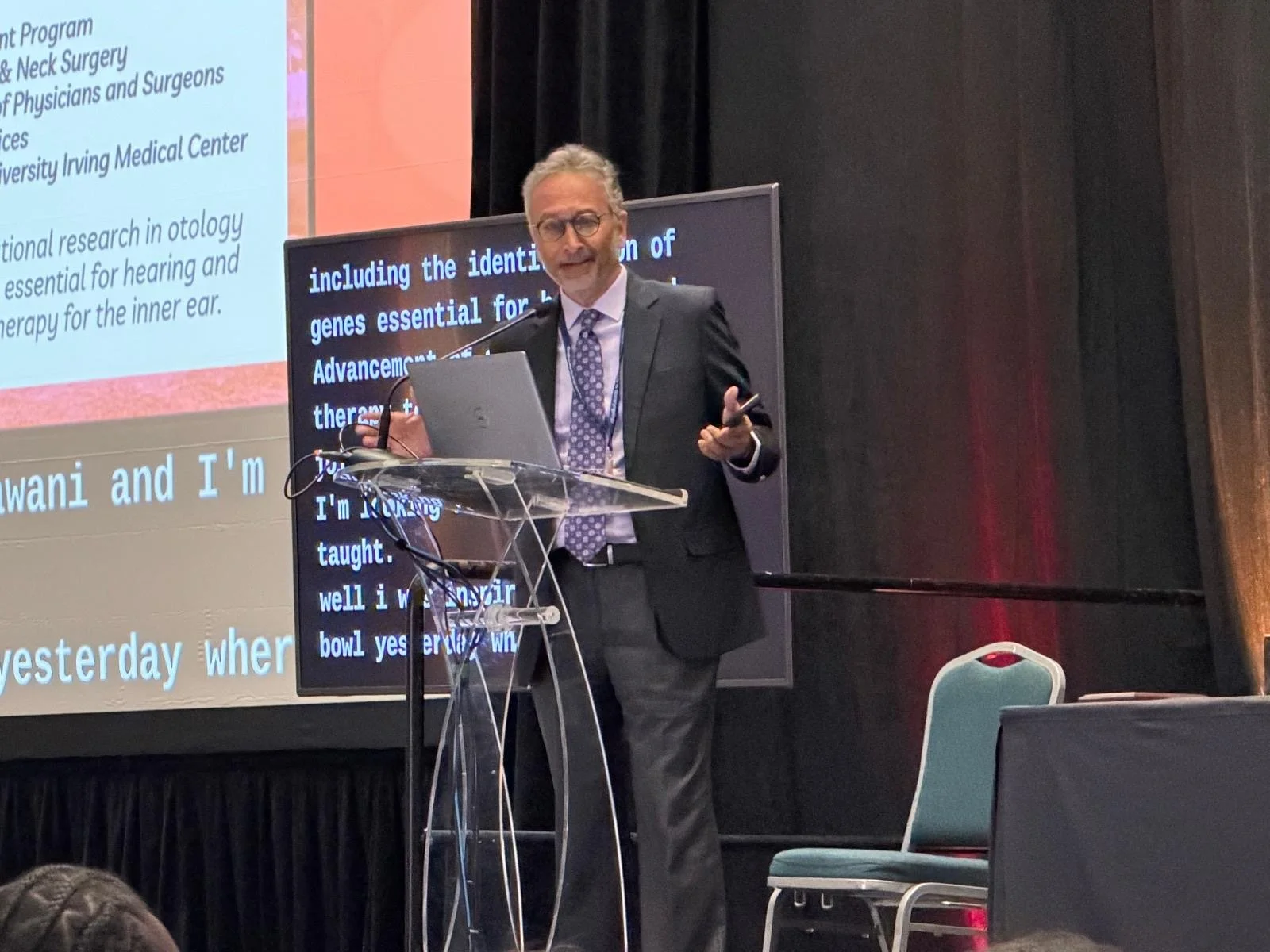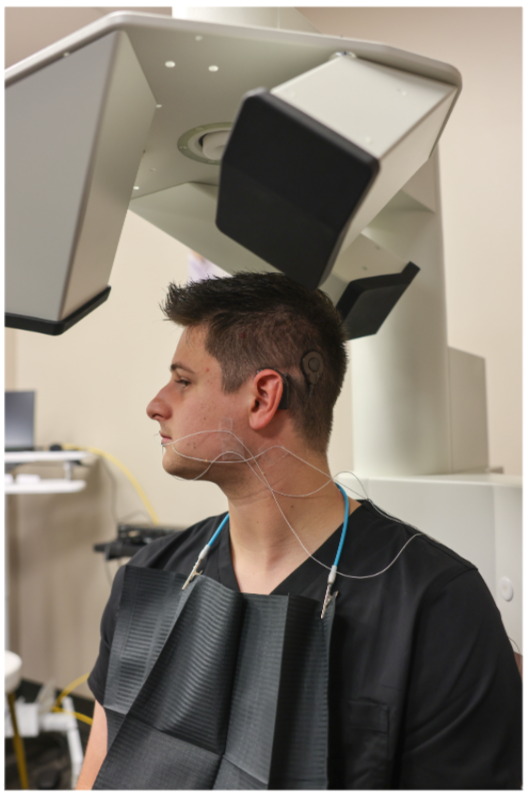By Pat Dobbs
When I entered the room, I was relieved to see that it was small and had carpeting. Good. Excellent acoustics for a meeting. And there would only be four people participating with an additional person on Zoom. Again, promising hearing outlook for a meeting.
With Zoom open on my laptop to view our remote participant, I thought “well, why not”—so I turned on the captions.
The meeting started. And everyone was talking at once and so I couldn’t hear. After a few minutes I said, “Excuse me, I can’t hear. Please talk one at a time.”
They all looked at me like, of course. We should have thought about that—and they did for exactly one second.
Then you already know what happened. They continued to talk over one another.
But there was something else. In spite of the small and carpeted room, the acoustics were horrible, like sound was bouncing off the walls uncontrollably, almost like an echo. With people talking over one another and what ended up actually being bad acoustics, I couldn’t follow the conversation.
I tried to follow the Zoom captions while facing the screen or turning my head to look at the person who was talking so I could lip read, whichever made more sense in the moment. Turning my head back and forth between the screen and the person talking then made me dizzy.
Between the echo, turning my head back and forth, and the cross talk, I was paralyzed.
I couldn’t participate in the conversation.
Not participating made me feel so stupid. I felt like a lump on a log and imagined that they were thinking what a dummy I was.
I wanted to run away, to escape. But instead I sat glued to my seat, full of self hatred and utterly numb.
What should I do?
At one point I couldn’t sit another second. I got up and said I couldn’t hear and ran out of the meeting.
Of course, then I felt like an even bigger jerk. I should have stopped the meeting and said, “I can’t hear. We need to move to another room.”
I’m the one that is always talking about advocating for oneself. And what did I do? I only asked them once not to talk over one another but nothing else.
I felt I could never face those people again. To make matters worse, I felt like they would tell other people how pathetic I am. I figured I would just have to move to start a new life.
Yes—my mind was racing and I couldn’t stop imagining unrealistic, crazy, and even silly scenarios.
After leaving the meeting and a few days later, I was depressed. I’m happy in my community. I didn’t want to leave the meeting but I couldn’t face those people thinking how stupid and out of it I was.
My friend recognized my depression and said she would be happy to talk but she’s hearing—what would she know?
Then out of the blue my friend Mark called. His wife had a massive stroke two years ago and he devotes all his time to her care. He isn’t thrilled with his life but of course his wife isn’t thrilled either. But that is what they were dealt and they’ve accepted it.
I’d always respected him but now I respect him even more. He has devoted his life to his wife’s care without complaining but rather with love.
On the phone, I told him my situation and how I felt so stupid running out of the meeting and not advocating for myself.
He gently said, “Hey Pat. You really think those people are thinking what a jerk you are? I doubt it. It probably was just a passing blip in their lives. Just explain what was going on and get on with it.”
His words hit home. He’s right. What’s the big deal? Move on. Yes, I could have done better but, well, couldn’t we all say that about many of our actions?
Soon after I explained to the leader of the meeting what happened and she seemed to understand. And even if she didn’t, it’s my life and my actions that define me—and not one blip.
I felt as if the burden had been lifted.
Hearing loss is definitely a challenge. It can separate us from hearing conversations, making us feel disconnected. But we try our best to do what’s necessary for our best hearing experience even if sometimes our best isn’t what we would like.
But maybe most importantly—and something that I had forgotten—be gentle, forgiving, and loving to ourselves. After all, we’re human.
Hearing Health magazine staff writer Pat Dobbs has an adult-onset hearing loss and wears bilateral cochlear implants. She wrote the Spring 2024 cover story. The president of the international online hearing loss support group, Say What Club, saywhatclub.org, she is a resident of Deer Isle, Maine, where she formed the DownEast Chapter of the Hearing Loss Association of America. Find her at pat@beingheard.net and beingheard.net.







The internship last summer provided my first real chance to step into hearing science and learn the experimental side of speech perception under the tutelage of a senior researcher.